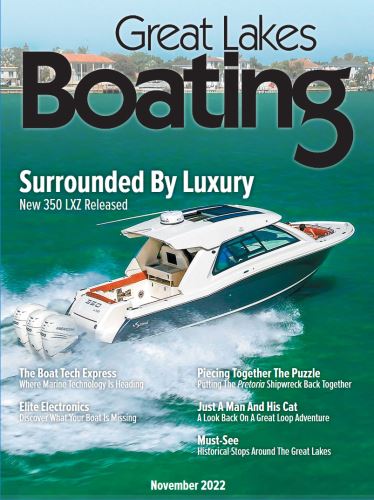Commentary-When Great Lakes thrive, so does Michigan economy
July 2014
uncategorized
GLB Admin
 With the Fourth of July right around the corner, the number of tourists and Michigan residents spending time on the Great Lakes is sure to soar. In anticipation of the bustling marinas, packed beaches and thriving tourist season, I wanted to make sure you were aware of the steps I have taken to ensure the Great Lakes can be enjoyed by all, while making sure they continue to be an engine of job creation and economic growth.
With the Fourth of July right around the corner, the number of tourists and Michigan residents spending time on the Great Lakes is sure to soar. In anticipation of the bustling marinas, packed beaches and thriving tourist season, I wanted to make sure you were aware of the steps I have taken to ensure the Great Lakes can be enjoyed by all, while making sure they continue to be an engine of job creation and economic growth.
It's currently estimated that 18 million cubic yards of sediment clog ports and waterways throughout the Great Lakes. To put this number into perspective, a standard dump truck holds about 15 cubic yards of material, so 18 million cubic yards of sediment would fill the equivalent of 1.2 million dump trucks. If these dump trucks were placed in a line, they would span 6,694 miles; this is greater than the distance between Holland and Beijing, China. The backlog of sediment not only decreases the amount of goods that can be shipped among our interconnected harbors, it threatens jobs throughout West Michigan. If our ports are not properly dredged, it means smaller ships, which means smaller loads that result in less economic activity and fewer jobs along the lakeshore and throughout West Michigan.
Recognizing the immediate need for action, I helped draft the Great Lakes Navigation System Sustainability Act and fought for its inclusion in the Water Resources Reform and Development Act. This bill, which President Barack Obama recently signed into law, classifies the Great Lakes Navigation System as a unified body for the purposes of funding water infrastructure projects. Properly funding harbor dredging across the Great Lakes will further increase economic activity for an industry that supports approximately 130,000 jobs. An additional benefit to West Michigan from WRRDA is that it creates a way forward for emerging harbors allowing recreational boating to flourish.
All that being said, it's important to keep in mind that a lack of dredging is not the only factor currently preventing the Great Lakes from reaching its full economic potential. Invasive species pose a serious economic threat in addition to the clear environmental danger they create within the ecosystem.
In order to combat the spread of invasive species, we must develop a comprehensive strategy for the short, medium, and long term. In the short term, the electric barrier in the Chicago Area Waterway System must be improved and temporary mitigation efforts expanded. Additionally, locks should be strategically located and one-way control points constructed to protect the Great Lakes in the mid-term. Lastly, in the long term, permanent hydrologic separation of the Mississippi River Basin from the Great Lakes should be pursued. However, in doing so, we need to be mindful and allow for the free flow of commerce. That is why I am pushing for action on the Defending Against Aquatic Invasive Species Act, or H.R. 4001, a bill to separate the hydrologic connection between the Great Lakes and the Mississippi River Basin.
Summer along the Michigan lakeshore can compete with any vacation destination around the country. I want to wish you a safe and happy Fourth of July and let you know that I will continue to work with my colleagues on both sides of the aisle to keep the Great Lakes clean, safe and navigable.
— U.S. Rep. Bill Huizenga of Zeeland represents Michigan’s 2nd Congressional District.
Read more: http://www.hollandsentinel.com/article/20140630/Opinion/140639976#ixzz36ENVpfVh

